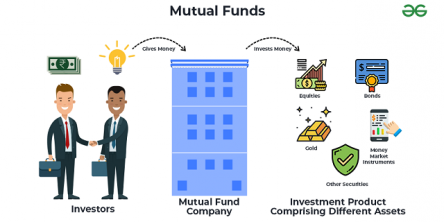The Modern Financial Planner - Balancing Tech Efficiency with Human Insight

In the fast-paced world of finance, it can be hard to keep up with the latest advancements in technology. But for financial planners, staying ahead of the curve is crucial. As algorithms and AI chatbots continue to revolutionize the industry, the role of the human advisor has become more important than ever before. It's no longer enough to simply offer financial guidance - planners must also be able to leverage cutting-edge tools in order to stay competitive.
At the same time, they must also preserve the value of personal insight and trust that can only come from a human advisor. The future of financial planning is all about finding the perfect balance between efficiency and empathy. By combining the precision of technology with the nuanced understanding of a human advisor, financial planners can remain indispensable in a high-tech world.
As technology continues to advance at a rapid pace, there is a growing need for financial planners to leverage these advancements to enhance their efficiency. One way of doing this is by automating routine tasks using robo-advisors, AI-driven analytics, and other such technologies. This automation can free up time and resources for planners, allowing them to focus on more complex, value-added services. Additionally, advanced data analytics and machine learning tools can assist planners in providing more precise and personalized advice. By analyzing vast amounts of financial data, these tools can uncover trends and insights that were previously inaccessible. This data-driven decision making can prove invaluable in helping clients achieve their financial goals and aspirations.
In today's digital age, the financial planning industry has seen an influx of technology tools meant to streamline processes and provide clients with easy access to information. However, even with all these advancements, trust remains the foundation of a successful client-planner relationship. After all, computers cannot replicate human empathy and emotional intelligence. Therefore, it is essential for planners to take a holistic approach to their work, prioritizing human interactions and active listening.
By building rapport and understanding a client's unique needs, fears, and goals, planners can provide a customized service that addresses the personal and emotional aspects of financial planning. This underscores the value of maintaining human-centric relationships and shows that technology can only do so much when it comes to matters as important as personal finances.
Integrating hybrid models into financial advising practices seems to be the way of the future. With the need to cater to different client preferences, marrying digital and human touchpoints is proving to be a successful approach. It provides the efficiency of technology while ensuring that human advisors are still available for more personal and strategic discussions.
This kind of model offers personalization at scale and enables automated systems to cater to routine tasks and simple client inquiries. Advisors can then fully focus on providing tailored advice for more complex financial needs. As we continue to advance technologically, hybrid models prove to be both practical and effective for meeting the evolving needs of modern-day clients.
One of the biggest changes is the demand for digital communication channels. From video calls to instant messaging, clients now expect convenience and accessibility at their fingertips. To stay relevant, financial planners must integrate these channels into their client interactions. In addition, clients now demand more transparency and real-time updates on their financial status. Providing digital dashboards and real-time reporting tools can help meet these expectations and strengthen client relationships.
The rise of technology has brought great benefits but also new risks that must be addressed. As financial planners continue to rely on technology to manage client relationships and financial data, they must also take on the responsibility of ensuring robust cybersecurity measures are in place. These measures not only protect sensitive client information but also build client confidence in technology. By educating clients on data protection and demonstrating strong security practices, financial planners can enhance trust and satisfaction with their services.
Fragasso Financial Advisors is a Pittsburgh wealth management firm that has proven its ability to strike the balance between technological efficiency and personalized client service. In their latest blog post, "Personal Touch in a Digital World," the firm takes readers on a journey that explores their approach to integrating technology with the fundamental human elements that are vital to financial planning.
The post presents practical strategies and insightful perspectives on how to leverage cutting-edge tools for enhanced efficiencies while still prioritizing deep, trust-based relationships with clients. For anyone interested in understanding how a modern financial advisory firm can navigate today's digital landscape while still delivering the highly valued personal touch, Fragasso’s financial blog offers a wealth of knowledge and expertise.
In the rapidly evolving world of finance, the modern financial planner's role has become a blend of technological adeptness and human insight. As we navigate this transformative era, it’s clear that neither technology nor human touch can single-handedly fulfill the complex needs of today’s clients. The future of financial planning lies in the ability to seamlessly integrate the precision of cutting-edge tools with the nuanced understanding that only human experience and empathy can provide.
For those financial planners willing to embrace this balance, the rewards are profound: deeper client relationships, enhanced efficiency, and the ability to offer truly personalized advice in an increasingly automated world. As we look ahead, the challenge—and the opportunity—will be to continue innovating while staying rooted in the timeless principles of trust, empathy, and personal connection. The race to master this balance is not just a competitive necessity; it is the key to defining the future of financial advisory services.
Investment advice offered by investment advisor representatives through Fragasso Financial Advisors, a registered investment advisor.
Similar Articles
Save money on home & business essentials with bulk wholesale! Discover tips, product categories, and deals to maximize your savings.
Loud budgeting has taken over social media, with people openly discussing spending habits, saving strategies, and financial struggles. While this trend encourages transparency, it also adds pressure to meet certain expectations
Securing your financial future has become a necessity in today's world, and investing in mutual funds is one of the most popular ways to grow your wealth over time. Managing your money and investing in potential funds has become convenient and seamless with the help of the right online platforms
Gone are the days when you had to carry a wallet full of money when traveling somewhere. Now, cashless travel has become a reality due to technological developments, making it easier for travelers to manage their cash when they’re out and about.
Discover how ACH and eChecks revolutionize payments—offering cost-efficiency, security, and convenience while addressing cybersecurity challenges and future trends.
NPS (National Pension Scheme) is a popular option for those looking to save for retirement and get a steady income through an annuity after retirement. It is supported by the Indian Government and is based on contributions made regularly. The final pension will depend on the money that you build by the time of retirement and the portion used to purchase an annuity.
Debt collection can be stressful for both the debtor and the creditor. Howеvеr, undеrstanding thе tactics commonly usеd by dеbt collectors can help you protеct yoursеlf from potential lawsuits. Whether you’re a business owner collecting unpaid invoices or an individual dealing with personal debt, being informed about the legal and ethical boundaries of debt collection is crucial.
In the fast-paced world of international trade, how can businesses ensure smooth and efficient movement of goods across borders? The answer lies in expert facilitation services that specialize in navigating complex regulations and optimizing supply chain processes.
Managing cash flow is critical for any business's survival and growth. It involves tracking the money coming in and going out of the business to ensure it can meet its financial obligations.









